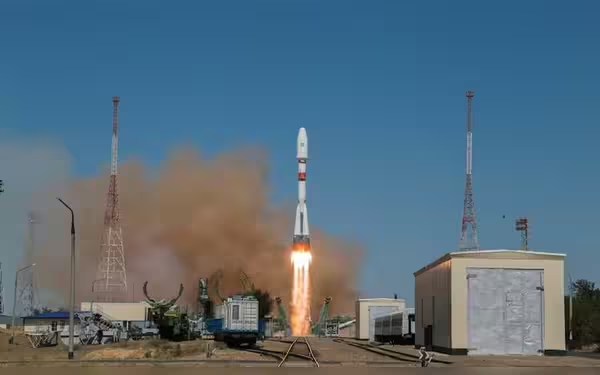Saturday, November 16, 2024 05:46 PM
Iran Dispatches Satellites to Russia for Launch
- Iran sends Kowsar and Hodhod satellites to Russia.
- Collaboration raises concerns over military implications.
- Iran's space sector advances despite international sanctions.
 Image Credits: brecorder
Image Credits: brecorderIran has sent two satellites to Russia for launch, enhancing space cooperation amid U.S. sanctions and raising geopolitical concerns.
In a significant development in international space cooperation, Iran has dispatched two domestically produced satellites to Russia. This move, reported by the semi-official news agency Tasnim, marks a notable collaboration between two nations that are currently under U.S. sanctions. The satellites, named Kowsar and Hodhod, are set to be launched into orbit by a Russian space vehicle, showcasing the growing ties between Iran and Russia in the field of space technology.
The Kowsar satellite is a high-resolution imaging satellite, which means it can take detailed pictures of the Earth. This technology can be incredibly useful for various applications, including agriculture, managing natural resources, monitoring the environment, and even disaster management. On the other hand, the Hodhod satellite is designed for communications, particularly in remote areas where traditional networks are not available. This could greatly enhance communication capabilities in regions that are often overlooked.
This is not the first time Iran and Russia have collaborated in space. In February and in 2022, Russia successfully launched Iranian satellites into orbit. However, this partnership has raised concerns among U.S. officials. They worry that these satellites could assist Russia in its ongoing conflict in Ukraine and provide Iran with the ability to monitor military targets in Israel and the broader Middle East.
Iran's private space sector is making strides with this initiative, as it represents a substantial effort to develop its capabilities in space technology. The launch of these satellites is part of Iran's broader ambition to enhance its technological prowess and assert its presence in the global space arena.
In September, Iran also conducted its second satellite launch of the year using a rocket developed by its Revolutionary Guards. This indicates a growing confidence in its space program and a commitment to advancing its technological capabilities despite international sanctions.
As the world watches these developments, it is clear that the collaboration between Iran and Russia in space is not just about technology; it is also about geopolitics. The implications of this partnership could extend beyond mere satellite launches, potentially reshaping the balance of power in the region. Understanding these dynamics is crucial as they may influence future international relations and security considerations.













